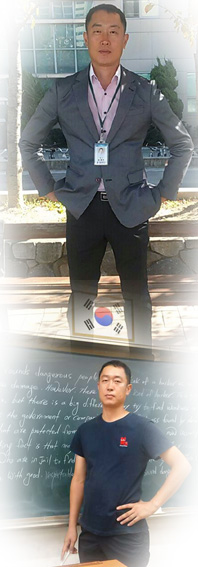2013년 수능 외국어 영역 41번 정답 및 해설 - 송곡닷컴(songgok.com)
41. 다음 글에서 전체의 흐름과 관계 없는 문장은?
Apologies often fail. One reason apologies fail is that the “offender” and the “victim” usually see the event differently. Examining personal narratives, researchers have found that those who cause harm tend to minimize the offense ― probably to protect themselves from shame and guilt. They also tend to downplay the consequences of their actions. ① These tendencies can inflame the anger of the hurt person, who, in contrast, may see an offense as bigger than it really is. ② When sincere apologies are offered in an ordinary human relationship, they are readily accepted by the victims and reconciliations ensue. ③ Those who are hurt tend to see the act as one with severe consequences and as part of an ongoing pattern that is inexcusable and immoral. ④ Each person has his or her own truth, and there is distortion on both sides. ⑤ Therefore, to apologize sincerely we must first listen attentively to how the other person really feels about what happened ― not simply assert what we think happened.
1. 내용풀이
잘못한 사람과 상처 입은 사람은 서로의 입장 차이로 인해 둘 사이에 있었던 일을 보는 시각이 다르므로, 한 쪽에서 사과를 하더라도 상대방이 잘 받아들이지 못한다는 내용의 글임. 그런데 ②번은 ‘진심 어린 사과는 상처 입은 사람이 쉽게 받아들이므로 화해에 이르게 된다.’는 내용이므로 글의 전체적인 흐름에서 벗어남.
2. 구문해설
① [Apologies often fail. One reason (why) apologies fail / is that the “offender” and the “victim” usually see the event differently. ] ※offender:범죄자 ←잘못한 사람 ※ victim ← 당한사람 → 사과는 흔히 실패한다. 사과가 실패하는 한 가지 이유는 “잘못한 사람”과 “당한 사람”이 대개 사건을 다르게 보기 때문이다.
② [Examining personal narratives, researchers have found that / those who cause harm / tend to minimize the offense ― probably to protect themselves from shame and guilt.] ※those who~: ~하는 사람들 ※tend to: ~하는 경향이 있다 = have a tendency to →개인적인 이야기들을 검토하면서, 연구자들은 해를 가한 사람들은 아마도 수치심과 죄책감으로부터 스스로를 보호하기 위해, 잘못한 일을 축소하려는 경향이 있다는 것을 알아냈다.
③ [They also tend to downplay the consequences of their actions.]
→ 그들은 또한 자신들의 행동 결과를 대단치 않게 생각하는 경향이 있다.
④ [These tendencies can inflame the anger of the hurt person, who(= the hurt person), in contrast, may see an offense as bigger than it really is.] ※in contrast: 대조적으로 →이러한 경향은 상처 입은 사람의 노여움을 악화시킬 수 있는데, 상처 입은 사람은 반대로 (기분이 상하게 된) 사건을 실제보다 더 크게 생각할 수도 있다.
⑤ [When sincere apologies are offered in an ordinary human relationship, they are readily accepted by the victims and reconciliations ensue.] ※are offered: 제안되다, 제공되다 ※are readily accepted: 쉽사리 받아들여지다 ※reconciliations ensue 화해가 일어나다 →진심 어린 사과가 평범한 인간관계에서 제안될 때, 그것들은 쉽사리 피해자(상처 입은 사람)에게 받아들여지고 화해가 이어진다
⑥ [Those who are hurt / tend to see the act as one with severe consequences and as part of an ongoing pattern / that is inexcusable and immoral.] ※Those who~: ~하는 사람들(주어), ※ tend to:~하는 경향이 있다(동사) ※see ⓐ as ⓑ: ⓐ를 ⓑ로 바라보다 ※see the act as one with severe consequences: 그 행위를 심각한 결과를 수반하는 것으로 바라보다(one = the act) ※as one 과 as part는 병렬관계 →상처 입은 사람들은 그러한 행위를 심각한 결과를 수반하는 것으로, 그리고 용서할 수 없고 비도덕적인 진행 중에 있는 패턴의 일부로 바라보는 경향이 있다.
⑦ [Each person has his or her own truth, and there is distortion on both sides.]
→각 사람은 그들만의 진실을 가지고 있고, 양쪽 모두에 왜곡이 있다.
⑧ [Therefore, to apologize sincerely / we must first listen attentively / to how the other person really feels about what happened ― not simply assert what we think happened.] ※how the other person really feels: 다른 사람이 어떻게 느낄지 ※about what happened: 일어난 일에 대해(what은 관계대명사) ※what we think happened: 일어났다고 우리가 생각하는 것 → 따라서 진정으로 사과하기 위해서는, 우리가 일어났다고 생각하는 것을 단순히 주장할 것이 아니라 일어난 일에 대해서 상대방이 정말로 어떻게 느끼는지에 대해 우선적으로 주의 깊게 들어야 한다.
3. 단어정리
*apology 사과 *offender 범죄자, 남의 감정을 해치는 사람→ⓥoffend 기분을 상하게 하다 ,성나게 하다 *offense 범죄, 위반 *victim 희생자, 피해자 *downplay 경시하다, 대단치 않게 생각하다 *consequence 결과 *in contrast 대조적으로 *inflame 격앙시키다, 악화시키다, 불을 붙이다*reconciliation 화해 →ⓥ reconcile 화해시키다 *ensue 잇달아 일어나다 *ongoing 진행하는, 전진하는 *inexcusable 용서할 수 없는 *immoral 부도덕한, 비윤리적인 *distortion 왜곡, 비뚤어짐 *attentively 주의 깊게 *assert 단언하다, 주장하다
4. 전문해석
사과는 흔히 실패한다. 사과가 실패하는 한 가지 이유는 “잘못한 사람”과 “당한 사람”이 대개 사건을 다르게 보기 때문이다. 개인적인 이야기들을 검토하면서, 연구자들은 해를 가한 사람들은 아마도 수치심과 죄책감으로부터 스스로를 보호하기 위해, 잘못한 일을 축소하려는 경향이 있다는 것을 알아냈다. 그들은 또한 자신들의 행동 결과를 대단치 않게 생각하는 경향이 있다. 이러한 경향은 상처 입은 사람의 노여움을 악화시킬 수 있는 데, 상처 입은 사람은 반대로 (기분이 상하게 된) 사건을 실제보다 더 크게 생각할 수도 있다. (진심 어린 사과가 평범한 인간관계에서 제안될 때, 그것들은 쉽사리 피해자(상처 입은 사람)에게 받아들여지고 화해가 이어진다.) 상처 입은 사람들은 그러한 행위를 심각한 결과를 수반하는 것으로, 그리고 용서할 수 없고 비도덕적인 진행 중에 있는 패턴의 일부로 바라보는 경향이 있다. 각 사람은 그들만의 진실을 가지고 있고, 양쪽 모두에 왜곡이 있다. 따라서 진정으로 사과하기 위해서는, 우리가 일어났다고 생각하는 것을 단순히 주장할 것이 아니라 일어난 일에 대해서 상대방이 정말로 어떻게 느끼는지에 대해 우선적으로 주의 깊게 들어야 한다.
송곡닷컴(songgok.com) - 손범식
.gif)


.gif)

